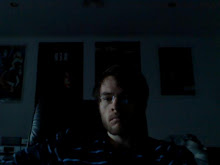What’s interesting here is Dryden’s assumption that criticism is evaluation. ‘True judgement’ is treated as synonym for a criticism that reaches conclusions by weighing poems’ beauties and faults. Where elucidation? Where interpretation?
Dryden himself is always weighing—most conspicuously in the essays on classical translation (he loves Pindar, Virgil), but also he considers the careers of dramatists and poets who preceded him in English. He weighs even criticism, in this letter to Charles, Earl of Dorset: ‘Mr Rymer sent me his book, which has been my best entertainment hitherto: ‘tis certainly very learned, and the best piece of criticism in the English tongue; perhaps any other modern.’ Entertainment? He’s right, you realise: a good picking apart, like James Womack’s of Paulin and Muldoon, or Wood’s of Updike and others, is always fun to read. But what’s its value? Where exactly is its audience? If written for the benefit of the writer criticised, such demolitions should be couched in far gentler language. No one blandly accepts lava-eyed vituperation as ‘improving’; then adopts the critic’s recommendations, with their spittly sheen & second-hand aroma. It’s more likely to spur them to write another book guilty of those flaws their critic would scoff at than sting them into hurt submission. Artists good and bad set their own agenda, and won’t be warned from pursuing certain paths unless they agree with critics that they’re fogged—in which case they’d never have pursued them in the first place. Bad reviews are simply and complexly entertainment for readers who like seeing those self-impressed or merely foolish enough to try promulgating their art shot down like clay pigeons at a toffs’ picnic.
The audience of criticism—generally as possible—wants two things: to know what’s good and to know why. Criticism as practised now is either broadly journalistic or broadly academic, and those two fields tend to address one demand more fully than the other; that is, journalistic reviews deal more with what’s good, academic with why. Of course there is overlap. A sophisticated film critic, say, will give as much analysis and justification for his star-rating as space allows. Essentially, though, he is recom- mending one’s evening film, and needn’t try too hard analysing when he knows not many readers are likely to have seen it yet. The academic’s indication of what’s good will tend to be implicit in his choice of what to bother criticising, though this has become less true as academics focus on increasingly obscure texts in the scrap for original research. But he will treat the why in very much greater detail. Indeed, it is a great question, if one sets within its remit questions of interpretation, of exposition, as I think is appropriate. Perhaps it’s contentious to say the question of what a text is about, what it means, is subordinate to or at least component of why it’s good. But think: if questions of meaning were considered apart from those of value, what would impel anyone to care about the answers? Literary criticism would cease to be literary, and become subsumed under whatever domain of history deals with cultural documents. The interpretation of a text is by no means fundamentally a literary endeavour, but the interpretation of it when alive to how the writer’s conveyance and our construal of meaning influence the text’s success or failure as art is literary by definition. When a critic examines a crux in Shakespeare, he does not just seek the exact meaning of the seven or ten words in front of him as it would have been received by Shakespeare’s contemporaries, but the words’ meaning in relation to the surrounding lines and relevant scene (or even ‘the whole together’, as Dryden has it), how small alterations might in turn modify our sense of those lines and that scene, and how they might advance our sense of their quality as art. If, for example, we knew definitely what Hamlet meant by his ‘dram of eale’ remark, we’d obtain thereby surer purchase on our idea of the success of his ‘nature’s livery’ speech entire.
Dryden, being a poet of fact, in Auden’s judgement our greatest occasional poet, a poet of record and of the history which unfolded as he worked, wrote poetry that’s particularly receptive to political and historical interpretation. Such interpretation is moreover particularly necessary with regard to him—just look at MacFlecknoe and Absalom. But to what purpose? Why root out the obscure significances of locutions long thought understood, or the forgotten referent behind some odd proper noun? Academic detective work like this is fine and useful, I concede, if it’s carried out in literary spirit. If the historical understanding of the poem we seek affects our larger understanding of its value—if, say, in mining for political resonance we strike a profound seam—then such work is worthwhile. But so often it is prosecuted only with political or historical ends in mind. So often there is no concern for the literary value of the factual discovery. There’s an assumption it’s enough just to find, or to think one’s found, significances hitherto buried in centuries’ compost without considering their relevance to the poem as literature. Many such discoveries have therefore no bearing on our concepts of what in poetry is good or why it’s so, and do not constitute true criticism. Historical criticism may well explain a lot, or at least correct misconceptions, but what use is such unblemished comprehen- sion without knowing the value of what’s comprehended? I could in an essay perhaps unweave the whole politico-historical texture of a Roscommon poem or a Rymer play; I wouldn’t have criticised it, I would have researched it. The task of criticism is only secondarily to understand; its first task is to appreciate.
What’s good and why is it good? are questions beyond historical enquiry. The answers are literary.




No comments:
Post a Comment